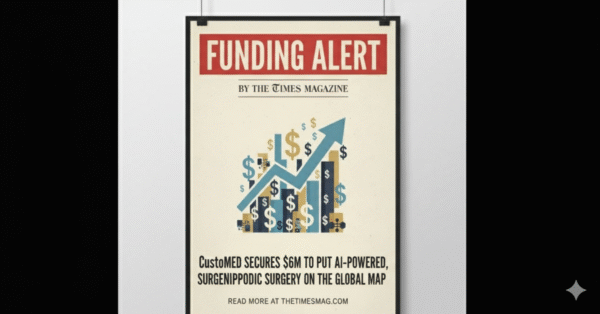In a significant milestone for antibiotic innovation, Blacksmith Medicines has been granted both Qualified Infectious Disease Product (QIDP) and Fast Track designations by the U.S. Food and Drug Administration (FDA) for its novel antibiotic candidate, FG-2101. This small molecule inhibitor targets LpxC, a metalloenzyme essential to the survival of Gram-negative bacteria, including multidrug-resistant strains—an area of urgent unmet medical need.
These regulatory designations under the Generating Antibiotic Incentives Now (GAIN) Act provide Blacksmith with accelerated review timelines and an additional five years of market exclusivity, a rare and valuable incentive that underscores the critical public health importance of FG-2101. The FDA’s Fast Track status aims to expedite development and facilitate earlier patient access, while QIDP status prioritizes the drug’s review process to combat life-threatening infections.
At the helm of this breakthrough is CEO and co-founder Dr. Zachary Zimmerman, who emphasizes the therapeutic promise of FG-2101:
“We are pleased to receive the QIDP and Fast Track designations for FG-2101 as a first-in-class, Gram-negative antibiotic addressing serious unmet needs of public health and national security.”
FG-2101’s mechanism targets LpxC, a zinc-dependent hydrolase that is conserved across Gram-negative pathogens but absent in human cells and Gram-positive bacteria. This selective inhibition promises to eradicate dangerous bacterial infections while sparing beneficial microbiota, potentially reducing complications such as opportunistic Clostridioides difficile infections. Unlike previous LpxC inhibitors hindered by poor drug-like properties, Blacksmith’s novel non-hydroxamate chemistry—developed through its proprietary metalloenzyme platform—has demonstrated potent efficacy and safety in preclinical models.
Blacksmith’s platform leverages a comprehensive approach combining a vast proprietary fragment library of metal-binding pharmacophores, advanced computational modeling, and innovative genome-wide metallo-CRISPR tools. This integrated methodology enables the rational design of highly selective small molecule inhibitors targeting the complex class of metalloenzymes, which constitute over 30% of all enzymes yet remain notoriously difficult to drug.
The company’s strategic collaborations with global pharmaceutical leaders including Eli Lilly, Hoffmann-La Roche, Basilea Pharmaceutica, and others reflect the industry’s confidence in Blacksmith’s approach. Supported by non-dilutive funding from NIH/NIAID and CARB-X, Blacksmith is poised to accelerate FG-2101’s clinical development under a contract with the National Institute of Allergy and Infectious Diseases (NIAID).
Editorial Perspective:
Blacksmith Medicines occupies a rare niche in antibiotic innovation, addressing a critical void in treatments for multidrug-resistant Gram-negative infections—an area where therapeutic options have stagnated for decades. The dual FDA designations not only de-risk FG-2101’s pathway but also affirm the platform’s potential to disrupt the longstanding challenges of metalloenzyme targeting.
The company’s chemistry innovation, moving beyond traditional hydroxamate inhibitors, could set a new standard in antibiotic drug design, particularly at a time when antibiotic resistance poses a mounting global health threat. With the strategic support of heavyweight pharma partners and governmental agencies, Blacksmith is well-positioned to translate its cutting-edge science into clinically meaningful solutions.
However, the road ahead involves navigating rigorous clinical trials and regulatory hurdles. Success here would mark a pivotal advancement, not just for Blacksmith but for the antibiotic drug development ecosystem—potentially revitalizing interest and investment in an area long considered high-risk.
Given the urgent demand for novel antibiotics and the regulatory incentives now accelerating development, Blacksmith’s journey with FG-2101 will be closely watched by industry stakeholders and public health advocates alike.
If you need further assistance or have any corrections, please reach out to editor@thetimesmag.com.











